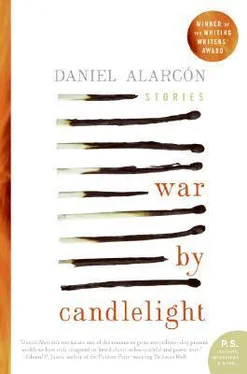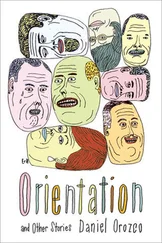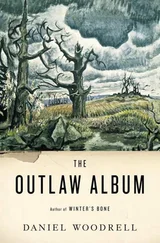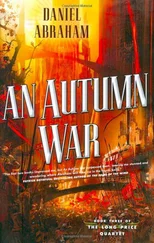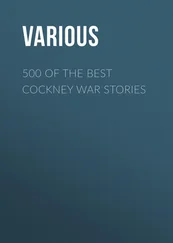Daniel Alarcon - War by Candlelight - Stories
Здесь есть возможность читать онлайн «Daniel Alarcon - War by Candlelight - Stories» весь текст электронной книги совершенно бесплатно (целиком полную версию без сокращений). В некоторых случаях можно слушать аудио, скачать через торрент в формате fb2 и присутствует краткое содержание. Год выпуска: 2006, Издательство: Harper Perennial, Жанр: Современная проза, на английском языке. Описание произведения, (предисловие) а так же отзывы посетителей доступны на портале библиотеки ЛибКат.
- Название:War by Candlelight: Stories
- Автор:
- Издательство:Harper Perennial
- Жанр:
- Год:2006
- ISBN:нет данных
- Рейтинг книги:4 / 5. Голосов: 1
-
Избранное:Добавить в избранное
- Отзывы:
-
Ваша оценка:
- 80
- 1
- 2
- 3
- 4
- 5
War by Candlelight: Stories: краткое содержание, описание и аннотация
Предлагаем к чтению аннотацию, описание, краткое содержание или предисловие (зависит от того, что написал сам автор книги «War by Candlelight: Stories»). Если вы не нашли необходимую информацию о книге — напишите в комментариях, мы постараемся отыскать её.
is an exquisite collection of stories that carry the reader from Third World urban centers to the fault lines that divide nations and people — a devastating portrait of a world in flux — and Daniel Alarcón is an extraordinary new voice in literary fiction, one you will not soon forget.
War by Candlelight: Stories — читать онлайн бесплатно полную книгу (весь текст) целиком
Ниже представлен текст книги, разбитый по страницам. Система сохранения места последней прочитанной страницы, позволяет с удобством читать онлайн бесплатно книгу «War by Candlelight: Stories», без необходимости каждый раз заново искать на чём Вы остановились. Поставьте закладку, и сможете в любой момент перейти на страницу, на которой закончили чтение.
Интервал:
Закладка:
Victor died in a windowless basement apartment in Barrios Altos of complications resulting from acute appendicitis.
X. Mateo, 1989
Fernando stopped by Mateo’s apartment one evening. It was November. Soon the city would be beautiful again. The brothers embraced warmly; though they lived nearby, they had not seen each other in months. Fernando sat down, and Mateo brought him a drink. “This apartment is killing me, Nano,” he said.
The curtains were drawn. All the furniture was covered in dust. “You changed the arrangement here, no?” Fernando asked.
“We moved everything toward the center. Away from the window,” Mateo said, nodding absentmindedly. “Bombs.”
Outside, along the avenue, just one hundred feet from Mateo’s window, there was a red brick wall that read NO STOPPING UNDER PENALTY OF DEATH. Behind it, there was an army installation. Every two hundred feet or so, a turret stood above the brick wall, each with an armed soldier inside. Mateo had been pleading with the landlord to let his family move to another apartment, one that wasn’t so compromised by its location.
The sofa was set in the middle of the room; two strips of electrical tape made an X across each window. “To keep the glass from blowing inward.”
Fernando nodded. He had done the same in his apartment. Mateo’s neighbors had moved away. “We try not to look out the window,” Mateo said, finishing his drink.
“Someone has been watching me, Mateo.”
“Of course.”
Mateo knew exactly what his brother was involved in. They had never discussed it, but each assumed that they knew the same people, only from different sides. They were right. Mateo was an officer. Policía Nacional del Perú. “What happened?” he asked.
“My car was stolen, the other day, near the university—”
“Which doesn’t in itself mean anything.”
“No, of course not.” Fernando chuckled. “It’s a piece of shit, but still, it’s surprising it hasn’t happened sooner. But what happened after was strange. I reported it to the police. At the station, they made me wait. Then an officer came out, less than two hours after it had gone, and told me they had found my car.”
Stolen cars don’t appear in Lima, not like that, not until the piranhas have taken them apart. Mateo knew that. Everyone knew that.
Fernando continued. “They took me right to it, right where I had left it. Exactly as it was before I had reported it missing.” He paused, and leaned over the table toward Mateo. “Except my briefcase was missing.”
“You’re certain?”
“Gone.”
“Did you go back for it?”
Fernando nodded.
“You shouldn’t have.” Mateo shook his head. “What did they tell you?”
“‘So, it seems you’re some kind of politico, no?’”
“And you said?”
Fernando paused, taking a deep, tired breath. He hadn’t slept. “I said where’s my fucking briefcase.”
“Nano!” Mateo stood up with a start. “How could you put yourself in that kind of position? How could you have so little regard for your own life?”
“I don’t know. I messed up.” He looked down. He wiggled his toes inside his shoes.
“Nano,” his brother said. “Look at me. What was in the briefcase? What did you have in there?”
“Documents. Papers. Names. I don’t know exactly. Maybe nothing.”
“Nothing?”
Fernando was suddenly afraid. “I haven’t told Maruja.”
“Is she implicated?” Mateo asked.
“No.”
“Are you?”
Fernando closed his eyes but didn’t answer. Mateo was still standing over him when he opened them again. The brothers stared at each other for a moment, in silence.
Mateo slumped down in his chair again.
“The circle is tightening, Nano…. Be careful.”
XI. Oxapampa, 1989
A few weeks before Christmas, the Party called on Fernando to make a trip. He didn’t tell Maruja where he was going, although she must have suspected. He didn’t inform the university that he was taking leave, nor did he expect to be gone for long. Fernando took a bus to Huancayo, and in the noisy bus station he met his contact, a comrade from the Party. Together, they rode away from Huancayo, north into the valley, and then into the jungle. They spent one night in Oxapampa, registered under false names at a local hotel, and woke with flea bites and neck cramps. They hiked for the next two days and then met another man, who led them even farther. And then, in a clearing, three days from anywhere, Fernando met the combatants. José Carlos had been waiting for him.
The fighters were young and frightened and dwarfed by their weapons. They had scarcely begun to live. They had never read Marx or heard of Castro. Some had never been to Lima. There was little bravado among them, little of that swagger that one would associate with carrying a gun. The forest was dark and damp. In camp, they made space for the visitor from Lima in one of the olive green tents. Fernando thought they looked ill, gaunt, tired. He briefly felt shame.
There was a clearing, where the rebels learned the basics of engagement. In the mornings, they dispersed in squadrons, drifting into the jungle; they ran exercises, learned how to use their guns. They hid from one another and shot the branches off trees from a hundred yards away. They tossed rocks at targets, pretending they were grenades. Fernando watched as they threw, counting — one, two, three, four — and whispered the coming explosion:
Boom.
Those who saw him then described Fernando as electric, brilliant, defining the sacrifices that still awaited them, and the injustices that had steeled their resolve. No question animated him more, sparked more passion within him, than why. Why there were no choices; why the time was now; why victory was assured.
It came from his heart, but he spoke with his hands, his arms, his entire body. Why the people had been denied schooling; why their fathers worked land they would never own; why their mothers cleaned houses; why their uncles did not stop working until blindness overwhelmed them. Why the defeated chased happiness in drink; why wealth bred depravity. Why the history was cruel and maniacal; why blood must be shed.
Standing in front of a map of the Americas tacked to the mossy trunk of a jungle tree, Fernando ran his finger up and down the peaks of the Andes, the spine of his continent, and told the tattered and inexperienced group of fighters what he would die believing that very day:
“All of this will be ours once more,” he said.
And he smiled as they repeated it with him. He delighted in the sound of their rising voices.
He looked up and caught a glimpse of the swollen sky through the forest’s canopy.
“All of this will be ours once more!” he said again.
And the words filled him with an inexplicable joy, even hope.
He was still alive.
a science for being alone
Every year on Mayra’s birthday, since she turned one, I have asked Sonia to marry me. This year our little girl turned five. Each rejection has its own story, but until recently, before the two of them left, I preferred to think of these moments as one long, unfinished conversation. Mayra’s fifth fell on a hot, bright day. I had twenty-five soles in my pocket, the ring, and a little makeup kit I’d bought for my daughter. I was at the Plaza Manco Capac, waiting for a spot at the lunch counter of a cheap criollo place before heading over to see the women of my life.
Sonia and Mayra lived in a hostel downtown. It’s an old building that belonged to the man who would have been my father-in-law. When Sonia failed the university exam, her father sent her to the States to learn a little of the language of tourism. When she returned he installed her in the hostel as the administrator. Mayra was just a few months old. The inn is called Hostal New Lima, just like that, with Spanglish syntax. She got the adventurous, the young and unshaven, the backpackers in their inimitable style, wearing vests with dozens of pockets or pants that unzip to become parachutes or inflatable rafts. Americans and Germans and French. For years Sonia occasionally took one to bed, but I never thought these flings amounted to much. In a way, I was proud of our modern arrangement, which I thought approximated those slippery, ambiguous, but ultimately loving relationships I’d seen on American sitcoms. We had our special anniversaries, our traditions, and Mayra’s birthday was one of them. It was the day we pretended we were a family still or that we once had been. It was the day I proposed with subtle fanfare that we become one.
Читать дальшеИнтервал:
Закладка:
Похожие книги на «War by Candlelight: Stories»
Представляем Вашему вниманию похожие книги на «War by Candlelight: Stories» списком для выбора. Мы отобрали схожую по названию и смыслу литературу в надежде предоставить читателям больше вариантов отыскать новые, интересные, ещё непрочитанные произведения.
Обсуждение, отзывы о книге «War by Candlelight: Stories» и просто собственные мнения читателей. Оставьте ваши комментарии, напишите, что Вы думаете о произведении, его смысле или главных героях. Укажите что конкретно понравилось, а что нет, и почему Вы так считаете.
